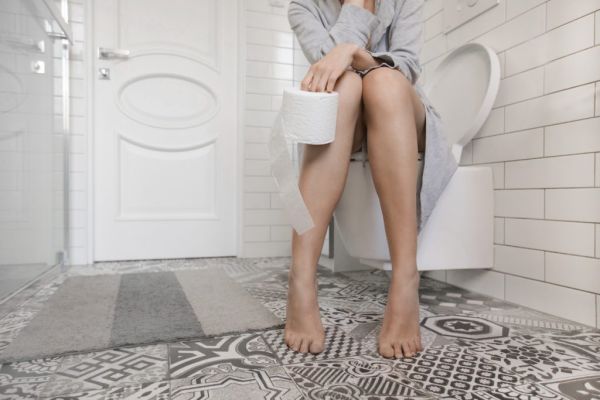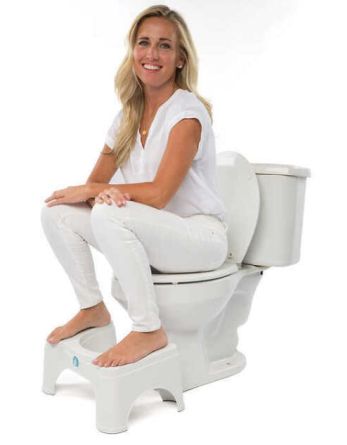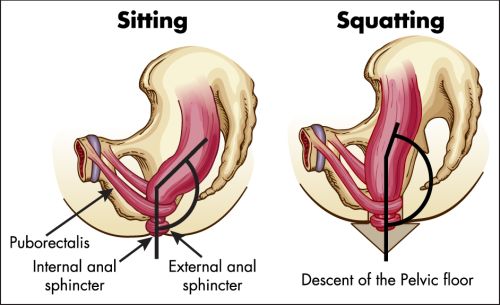Endometriosis & constipation

The topic of dealing with constipation combined with endometriosis is very close to the heart of many sufferers with endometriosis.
It is not clear why constipation is so common with endometriosis, but many illnesses and diseases can cause this distressing problem.
There is nothing worse than that bloated feeling, and feeling toxic when not being able to clear your bowels. Trying to deal with this problem on top of the pain of endometriosis adds insult to injury. Not to mention the pain that can be caused for some with endo when they do try to move their bowels.
Additionally there is the pain from inflammation in the general pelvic cavity area, and pain caused by gastro-intestinal symptoms. When combined with constipation this can lead to a lot of stress as well as discomfort.
A woman’s issue
Let’s face it – constipation seems to be a ‘woman’s thing’. Many diseases can cause issues with constipation for various reasons. It could be that hormones have a role to play. Having an underactive thyroid is renowned to cause issues with constipation and slow gut motility.
What is causing the problem and what can help constipation?
- You need extra fluid in the intestines. Magnesium helps to draw fluid INTO the gut and will help to soften the stools.
- Extra Vitamin C will help as it has a mild laxative effect
- The supplement of slippery elm can really help as it literally makes everything slippery! This aids in the transition of waste through your system.
- And one of the best things that will help is to to take a probiotic every day of a decent strength. Probiotics will help to repair any damage done to the friendly bacteria in your gut.
- Also, when you have a laparoscopy for endometriosis you will be given a bowel prep medication to take before the operation. This usually consists of a powder that cleans the out the gut … thoroughly!!! This will also strip out the good bacteria.
- The friendly bacteria can be killed off by anti-biotics, stress, bad diet
- Many women with endometriosis have been prescribed anti-biotics for the early mis-diagnosis of IBS, therefore the intake of these drugs will have undermined the health of the immune system even further
- Taking good bacteria supplements will repair the balance and over time will eradicate the bad bacteria.
- Most of these bacteria are found in the colon. It is estimated that together, all the bacteria in your gut weigh between three and five pounds. Each bowel movement contains a large amount of these critters, with one to two-thirds the dry weight of stool being solely bacteria. (1)
- The gut flora actually works in concert with the immune system in order to help it grow and develop, and to help fight bacterial and other infections.
- A whole host of health conditions can be traced back to poor gut ecology. Gut problems, including gas, bloating, constipation, Crohn’s, irritable bowel syndrome (IBS), and ulcerative colitis can all be improved through a better gut ecosystem.(2)
Try the Squatty Potty

One simple but effective habit you could adopt is to use something called the Squatty Potty, or else you could make a simple little foot-rest you can put your feet up on.
The principle behind raising your feet on the toilet is simple and is based on the fact that our ancestors squatted for centuries before the modern toilet was invented. This is the natural way to open our bowels. When you think about it, most of the worlds population still squats today and it is only in the West that we use the modern toilet we are so familiar with.
When we squat this enables a particular muscle to relax in the pelvis which removes the kink in the lower colon. This makes it much easier for faeces to pass through. The diagram below shows how the puborectalis muscle relaxes when squatting.

To sum up
To help with constipation and have the added benefit of a healthy gut and immune system:
- Take a magnesium supplement – experiment on the strength of dosage
- A good quality probiotic – every day
- Top up with extra vitamin C if you are feeling really clogged up!
- Balance your intake of fibre between soluble and non-soluble fibre foods - the soluble fibre will help to keep your gut hydrated with fluid, while non-soluble fibre will absorb fluid and slow the transit of waste through your system
- Use a squatty potty to help relax the muscle that holds the colon
So, if you are suffering the problem of constipation with endometriosis try the measures above, and try getting some relaxation/you time. Also taking some light exercise will help your digestion. Even just walking around the house will work, as gravity will help get things moving as opposed to being in the sitting position for many hours.
I am sure you aware - the longer you leave it, the worse things will get, especially if you have been laid up after surgery.
(1) Guarner F, Malagelada JR. Gut flora in health and disease. Lancet. 2003 Feb 8;361(9356):512-9.
(2) Guarner F, Malagelada JR. Role of bacteria in experimental colitis. Best Pract Res Clin Gastroenterol. 2003 Oct;17(5):793-804.
 As featured in:
As featured in:




